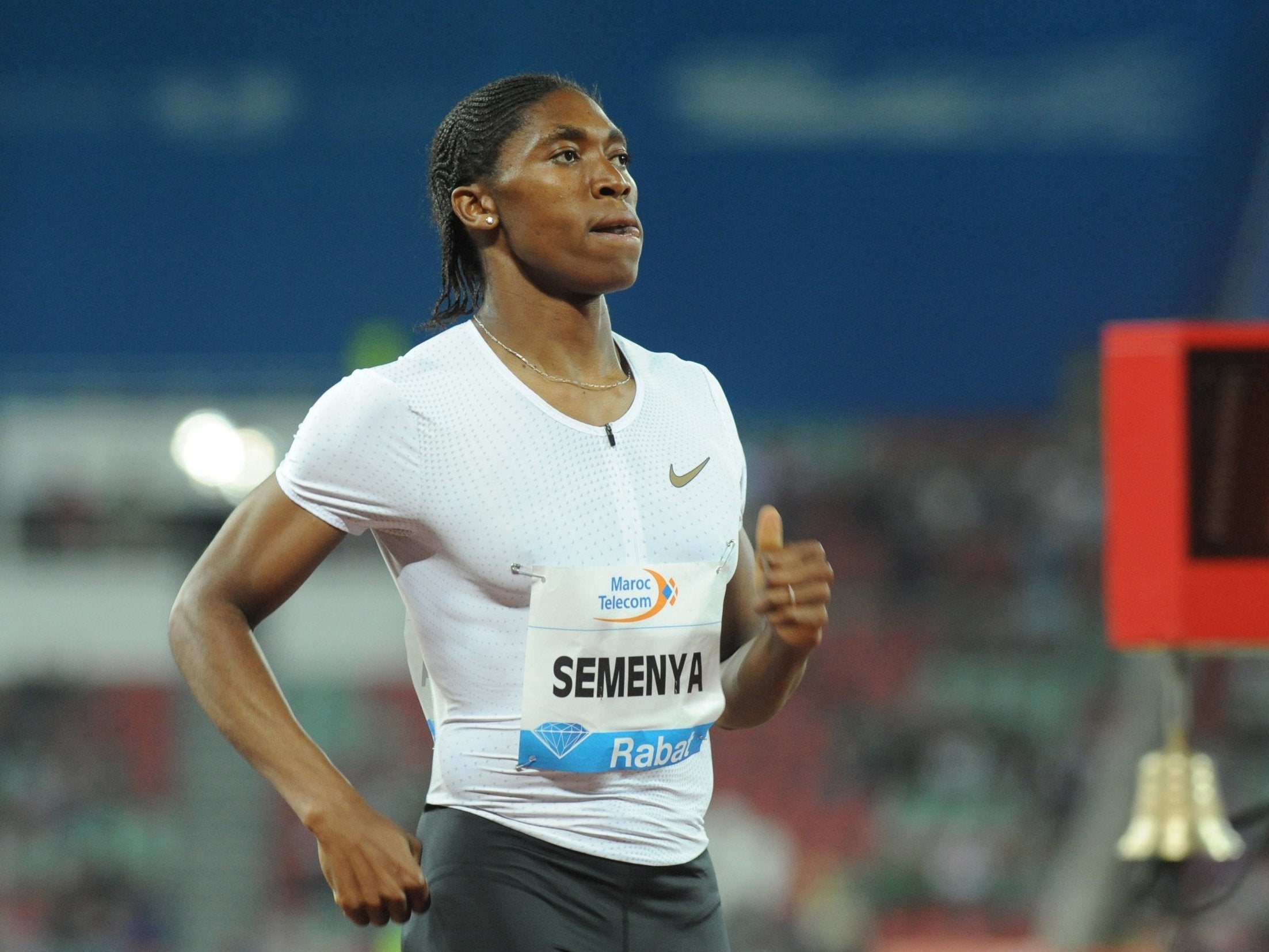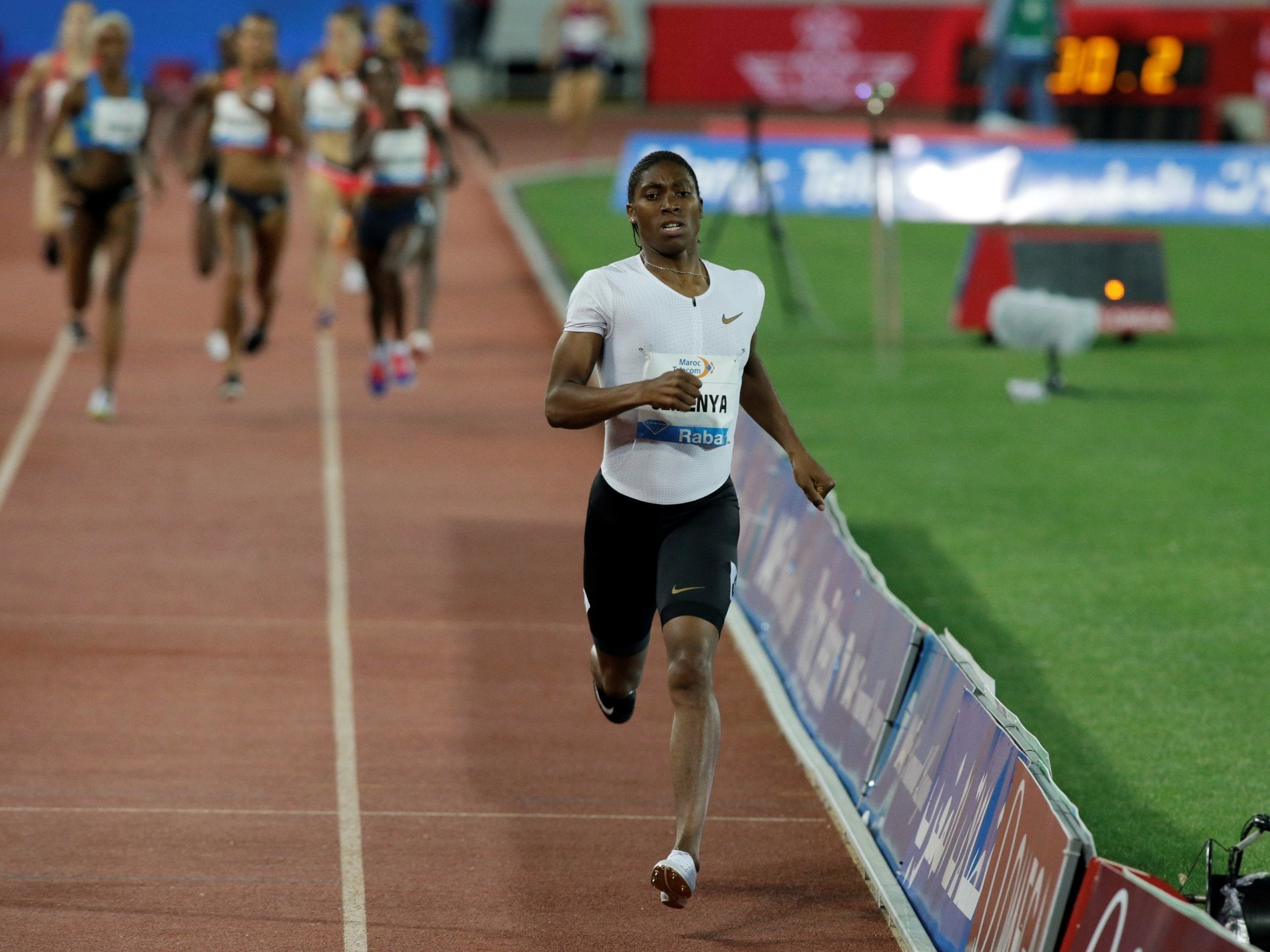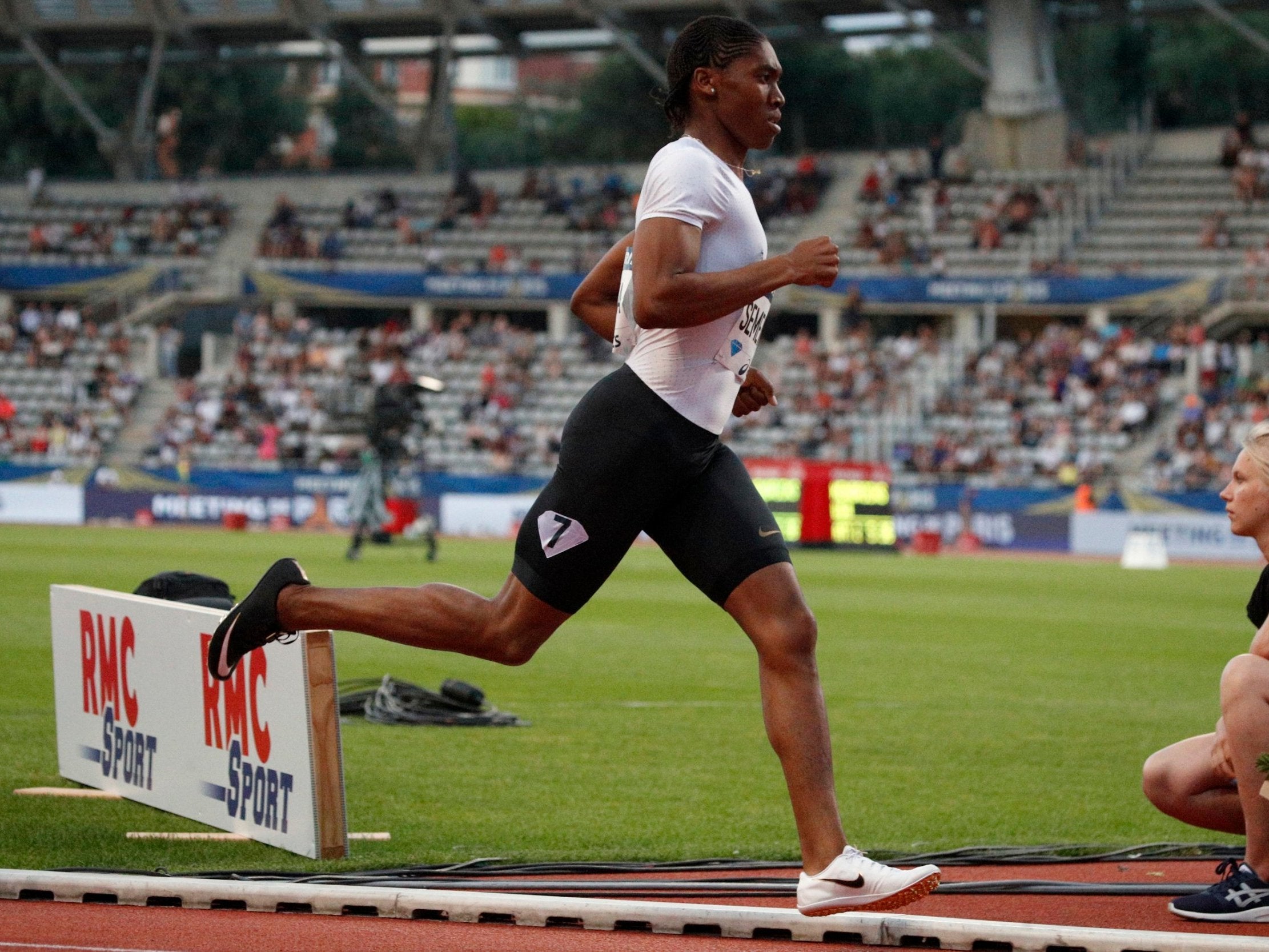Athletes unite behind Caster Semenya as new rules could signal endgame for South African
New IAAF rules could see Semenya leave athletics or face having to take medication to level playing field

Your support helps us to tell the story
From reproductive rights to climate change to Big Tech, The Independent is on the ground when the story is developing. Whether it's investigating the financials of Elon Musk's pro-Trump PAC or producing our latest documentary, 'The A Word', which shines a light on the American women fighting for reproductive rights, we know how important it is to parse out the facts from the messaging.
At such a critical moment in US history, we need reporters on the ground. Your donation allows us to keep sending journalists to speak to both sides of the story.
The Independent is trusted by Americans across the entire political spectrum. And unlike many other quality news outlets, we choose not to lock Americans out of our reporting and analysis with paywalls. We believe quality journalism should be available to everyone, paid for by those who can afford it.
Your support makes all the difference.Caster Semenya was a divisive gold medallist at London 2012. As the city prepares to host the Anniversary Games this weekend, new rules for hyperandrogenic athletes are pushing her out of the sport.
Caster Semenya should be celebrated for her gifts, not punished, one of Britain’s most respected athletes has said on the eve of the London leg of the Diamond League season.
The woman who monopolises the middle distances won her first Olympic gold medal in Stratford six years ago. She has become a far more popular and accepted athlete since then. Semenya is missing the London Anniversary Games to compete in Monaco and her teammates – and many of her rivals – fear controversial new rules will see her exit the sport after next month’s Diamond League finals.
Ignorance over the non-binary nature of gender saw Semenya widely held up as an unsympathetic cheat back in 2012. The IAAF governing body is this year resurrecting efforts to legislate against intersex athletes receiving a perceived advantage. Their roadmap threatens to disproportionately impact the 27-year-old and a bubbling victimisation backlash is coming to a head.
From 1 November, female track athletes with elevated levels of testosterone participating in events Semenya typically features in will be required to take medication to reduce levels of the hormone. Athletes who refuse will be shut out of competing in a thin band of events ranging from 400 metres to the mile in international meets under the new IAAF rules.
Semenya’s condition is called hyperandrogenism. “It’s tough for a lot of women in the 800m, 400m and 1500m at the moment to compare ourselves,” Australian rival Brittany McGowan said earlier this year. McGowan lost on home soil to Semenya at the Gold Coast Commonwealth Games. Team England was captained Down Under by Anyika Onuora, who has experienced more than once what it feels like to trail in Semenya’s wake. However, she has come out calling for Semenya’s attributes to be acknowledged rather than sanctioned by the IAAF, who bring the Diamond League to London this weekend.
“I speak to her on a regular basis on the circuit,” Onuora told The Independent. “The first thing I always say is, ‘you better be on the start list for the 400 metres’. If you’re her rival, you could say, ‘she’s gaining an advantage’, but that’s probably coming from your selfish needs, as opposed to looking at someone who’s just phenomenal and it’s not her fault.”
Semenya is most famous for exploits across 800 and 1,500 metres but she runs a handful of races across 400m, Onuora’s event, most seasons. “I think it’s great that there’s someone like her who can kick a lot of ass in the 400 but also kill the 800 and kill the 1500 too. There’s no denying that she has an immense amount of talent and I personally don’t think she should be punished for it. If it happens in the near future it would be a shame and I personally wouldn’t agree with it.”

Eyebrows have been raised at the study the IAAF are citing to support the introduction of new regulations. Testosterone was said to make a significant difference in five events, the research found. Bigger differences were recorded in the hammer throw (4.53 per cent) and pole vault (2.94 per cent) than the 400m (2.73 per cent) and 800m (1.78 per cent). Neither hammer throwers nor vaulters are going to be subject to the new regulations. Meanwhile the 1500m, for which there was no effect, will require hyperandrogenic athletes to self-medicate along with those who want to compete in the mile, which wasn’t even assessed as part of the study.
The study has been scrutinised by the athletics community since the new rules were proposed in April. Raised eyebrows extended to disillusionment in South Africa, where there are fears Semenya will quit if her appeal fails. The Court of Arbitration in Sport will deliver their verdict in the autumn. “We are all waiting to see how it turns out at the end of the season,” teammate Wenda Nel told The Independent. “I’m curious to see what will happen in that regard, if she will continue or stop the sport. She has shown anyone who might be in the same situation that no matter what, until they lock you in jail and you physically can’t get out, do what you love and do it to the full. I think that’s a great example. The support in the country is right behind her.”
Another teammate, Margo Chene Pretorius, feels Semenya has been victimised and that the alleged advantages intersex athletes enjoy has not been proven. “Having done [scientific] research myself, I know it’s not valid if it’s based on one study only. They [hyperandrogenic athletes] work just as hard as we do. It’s not that they’re doing less. You cannot just depend on your genetic deviations. You have to work for what you want. It feels biased. If they did more studies, then [the IAAF] would have a foot to stand on.”
The African National Congress, South Africa’s governing party, has accused authorities of displaying “blatant racism” through their plans to regulate middle distance athletes exhibiting high testosterone while ignoring the issue in the events that their referenced study has shown it to confer the most advantage.

US national hammer throw champion Deanna Price says she would be happy for the rules to be extended to her event to give them credibility. “They can test me for anything,” she said. “And if the tests found my testosterone level was giving me an advantage, I’d be happy to take the medication to lower it.”
Pole vaulter Katie Nageotte, who also represents America, disagrees. “The pole vault is a very fair playing field at the moment, very clean, and I don’t know what bringing [new rules] in would do to that dynamic.”
The IAAF says it is not passing judgment on people’s sex or gender, but says it reserves the right to organise events in men’s and women’s disciplines only. “Having levels of circulating testosterone in the normal male range and being androgen-sensitive gives a performance advantage of at least five or six per cent,” it argues.
Semenya – who endured an eleven month exile from the sport to undergo gender tests as a teenager – has recently remarked: “As a middle-distance runner, I have done enough for my collection.” You can read that as a statement of triumph or a statement of defeat. But you can only go round in circles for so long, on or off the track.
Join our commenting forum
Join thought-provoking conversations, follow other Independent readers and see their replies
Comments